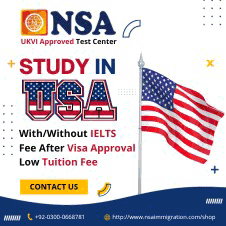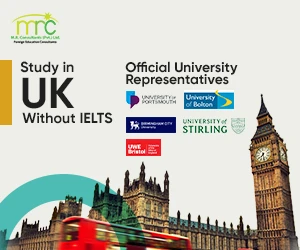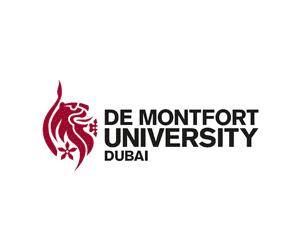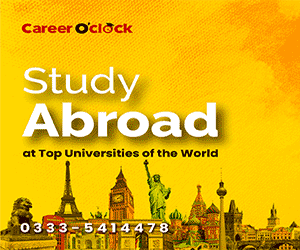
Prepare for success
Before departing of you graduate study abroad program, research your host country, university, and academic program. Familiarize yourself with local customs, cultural norms, and language requirements. Venture beyond campus to experience local culture, traditions, and lifestyle. Join cultural clubs, attend events, and participate in community service.
Are You Ready to Unlock a Life Changing Experience?
New culture, discovering hidden strengths, and connecting with likeminded individuals from around the world. Studying abroad offers an unparalleled adventure that will transform your life, both personally and professionally. Often universities will have partner universities they run exchanges with, so you may only be allowed to go to a selection of cities, however, apply for ones that interest you, not just where all your friends are going!

Many students tell us when they return to Penn State that making friends with host nationals was not easy to do, but that it was the most rewarding aspect of their study abroad experience. Please keep in mind that socialization patterns are different across cultures and the way one goes about developing and nurturing a friendship can be quite different from here at home. Consider volunteering while abroad or joining local clubs or student organizations to connect with local college students and community members.
-
Research your host country, culture, and university
-
Set clear academic and personal goals
-
Attend pre-departure orientation sessions
-
Connect with fellow students and alumni
| Expense | Considerations |
| Tuition Fees | Scholarships, financial aid, payment plans |
| Living Costs | Housing, food, transportation, healthcare |
| Travel | Flights, insurance, visas |
-
Immerse Yourself in the Local Culture
-
Must attend cultural events, festivals, and workshops
-
Join local clubs, organizations, or volunteer groups
-
Take language courses or conversation exchange programs
-
Explore your host country's history and traditions
Build a Global Network
-
Make Connection with international students, professors, and professionals
-
Must attend networking events, conferences, and seminars
-
Join online communities related to your field
-
Participate in group projects and collaborations

Enhance Your Academic Experience
-
Take courses with local professors or industry experts
-
Engage in research projects or internships
-
Participate in academic conferences or competitions
-
Seek guidance from academic advisors or mentors
Leverage Your Experience
-
Highlight your study abroad experience on your resume
-
Share your story through social media, blogs, or podcasts
-
Connect with alumni and professionals in your field
-
Pursue career opportunities in your host country or internationally
Develop a Global Network
Studying abroad provides a unique opportunity to connect with individuals from diverse backgrounds. To expand your professional network:
-
Attend networking events, conferences, and seminars
-
Join international student organizations or clubs
-
Participate in group projects and collaborations
-
Connect with alumni and professionals in your field
Develop a New Perspective
Quite often the most important things you need to know about a culture, no one ever tells you. Through time, experience and keen observation, however, you'll begin to discover the cultural knowledge people are using to organize their behavior. What values, attitudes and assumptions inform that behavior? Try to discover the worldviews of those in the host culture by putting aside your own predetermined notions of the way the world is or should be. Challenge your definitions of discrimination and prejudice.
Benefits
-
Cultural immersion and language skills
-
International networking and collaborations
-
Access to renowned universities and research institutions
-
Enhanced career prospects and job opportunities
-
Personal growth and independence

Popular Destinations
-
United Kingdom (UK)
-
United States (US)
-
Australia
-
Canada
-
Germany
-
France
-
China
-
Japan
Program Types
-
Master's degree programs (1-2 years)
-
PhD programs (3-5 years)
-
Certificate programs (6-12 months)
-
Exchange programs (semester or academic year)
-
Internship programs (3-12 months)
Fields of Study
-
Business and Management
-
Engineering
-
Computer Science
-
Public Health
-
Environmental Studies
-
International Relations
-
Arts and Design
-
Humanities
Scholarships and Funding
-
Fulbright Scholarships
-
Chevening Scholarship
-
DAAD Scholarships
-
Erasmus Mundus Scholarships
-
University-specific scholarships
Application Process
-
Research programs and universities
-
Check eligibility and requirements
-
Submit applications (transcripts, CV, letters of recommendation)
-
Secure funding or scholarships
-
Obtain visas and travel arrangements
Additional Resources
-
Study Abroad Platforms: Study Portals, Go Abroad
-
University Websites: Research top universities worldwide
-
Scholarship Databases: Fast web, International Scholarship Search
-
Cultural Adaptation Resources: Culture Shock, Expat Forum
A graduate degree abroad is definitely an experience with many positive outcomes. You can live in a new country, advance in your career, or grow your global network to name a few. While it’s not that same thing a studying abroad in your undergrad, grabbing your master’s abroad will give you a leg up in an increasingly globalized world. One thing that makes graduate abroad so attractive is the cost. In the U.S, students rely on loans to pay for their education which on average costs $34,220 per year.
Frequently Asked Question
Q: How do I choose the right study abroad program?
Research universities, programs, and locations; consider factors like academics, cost, culture, and safety.
Q: What are the benefits of studying abroad?
Enhanced cultural understanding, language skills, career prospects, personal growth, and global network.
Q: How can I fund my study abroad program?
Explore scholarships, financial aid, grants, and part-time job opportunities.
Q: What are the challenges of studying abroad?
Cultural adjustment, language barriers, homesickness, and academic differences.



.gif)


 176
176
 0
0

























